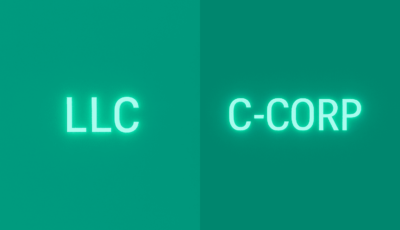Choosing the right type of legal form is crucial for founders and entrepreneurs. For fast-growing startups in particular, the question arises as to whether an AG or a GmbH is more suitable. In this article you will find out why the AG is essential for high-growth startups in particular and what specific advantages it offers compared to the GmbH.
Main differences between the AG and the GmbH
| AG | GmbH | |
|---|---|---|
| Company capital | At least CHF 100’000 (min. 50’000 paid in). | At least CHF 20’000. |
| Increase of share capital | – Ordinary capital increase – Conditional capital increase (often used for ESOPs) – Approved capital increase | Ordinary capital increase. |
| Nominal value of shares | At least CHF 0.01. | At least CHF 0.01. |
| Disclosure of shareholders | Shareholders and their shareholdings are not recorded in a public register. Directors and signatories are visible. | Shareholders and their shareholdings are recorded in the commercial register, which is public. |
| Form of transfer of shares | Depends if certificates issued or not: If certificates issued, transfer of certificate, and endorsement thereon. If no certificates are issued, written assignment declaration. Share transfer only needs to be registered in the company’s share register (not in the commercial register). Approval of the board is only required if transferability is restricted by the articles of association. | Assignment of shares must be made in writing. Any share transfer must be registered in the company’s share register and the commercial register (declaratory effect only). Unless waived in the articles of association, the share transfer needs to be approved by the shareholders’ meeting. |
| Exclusion of shareholder | A shareholder may only be excluded in case of non-payment of the issue price (per share). | A shareholder can be excluded in case of valid reasons. The articles may provide for further exclusion reasons. The purchase price must be the market value of the shares. |
| Liability | Only the company’s assets secure the company’s liabilities; the shareholders are generally not liable. Directors, officers, and other organs can become personally liable for breach of duties (e.g. duty of care and loyalty). | Only the company’s assets secure the company’s liabilities; the shareholders are generally not liable. Directors, officers, and other organs can become personally liable for breach of duties (e.g. duty of care and loyalty). |
| Ancillary obligations | The articles cannot impose ancillary obligations on the shareholders. | Statutory confidentiality and fiduciary duties of the shareholders towards the company. The articles may provide for a prohibition of competition and further ancillary obligations serving the purpose of the company, the maintenance of its independence, or the safeguarding of the composition of the shareholders. |
Advantages of the AG for high-growth startups
Raising capital: easy access to investors
Raising capital is often vital for high-growth startups. The AG offers decisive advantages:
- Easier capital increases: Capital increases are more straightforward as shareholders do not need to be registered in the commercial register (unlike a GmbH).
- Public offer and IPO: Shares can be offered to the public and traded on the stock exchange, which facilitates access to capital and potential investors.
- Capital band and conditional capital: The board of directors can flexibly decide on capital increases and issue options to employees or shareholders.
Sale of shares: Flexibility and anonymity
The sale of shares is very different between an AG and a GmbH:
- GmbH: The transfer of capital contributions is a complex process that usually requires the approval of the members’ general meeting and has to be registered in the commercial register.
- AG: Shares can usually be traded very easily. The transfer usually requires a hand-written (or QES) signed declaration of assignment. Another special feature of an AG is that the names of the shareholders are not entered in the commercial register and they therefore remain anonymous.
Employee ownership programmes: Attractive incentive schemes
It is particularly important for startups to attract qualified employees. In contrast to the GmbH, the AG offers more flexibility:
- Stock options: Stock options are easier to issue with an AG. This is because the AG can create conditional capital. This means that the company can issue new shares without the consent of existing shareholders. This simplifies and speeds up the process of issuing shares.
- More attractive incentive structure: Share ownership is often more attractive to employees than other forms of compensation because it offers the prospect of a financial stake in the future success of the company. This can be a powerful motivator, particularly in the growth phase of a startup.
Shareholder rights and obligations: fewer obligations, more freedom
With a GmbH, the members are often more closely involved in the company. This means that their personal characteristics and relationships play a greater role. For example, the articles of association of a GmbH may contain obligations to make additional contributions or general non-compete clauses.
By comparison, an AG offers shareholders more freedom and fewer obligations. This makes the AG particularly attractive to investors and the management.
Conclusion: The advantages of the AG for high growth startups
The choice of legal form has far-reaching effects on the growth and success of a startup. Despite the lower minimum capital and simpler formation requirements of the GmbH, the AG offers decisive advantages, especially for high-growth startups:
- Easier to raise capital: Easier access to capital than a GmbH.
- Flexible sale of shares: More flexible and easier transfer of shares and anonymity of shareholders.
- Attractive employee participation programmes: Varied and attractive incentive programmes for employees.
- Fewer obligations for shareholders: Fewer obligations for shareholders and more freedom for the management.
The AG is the right choice for high growth startups!












